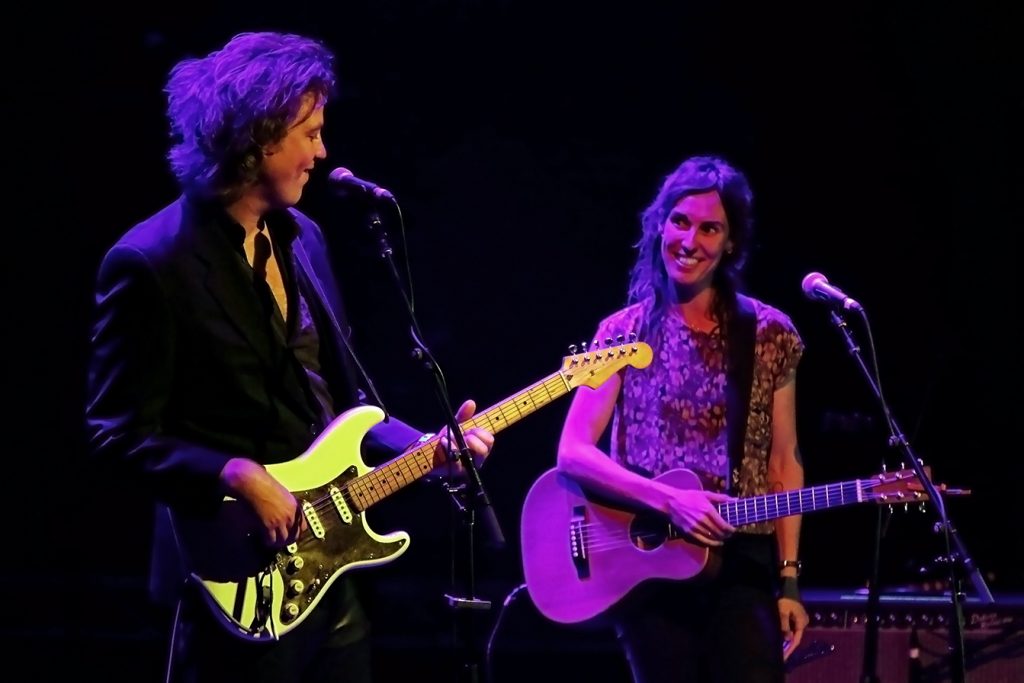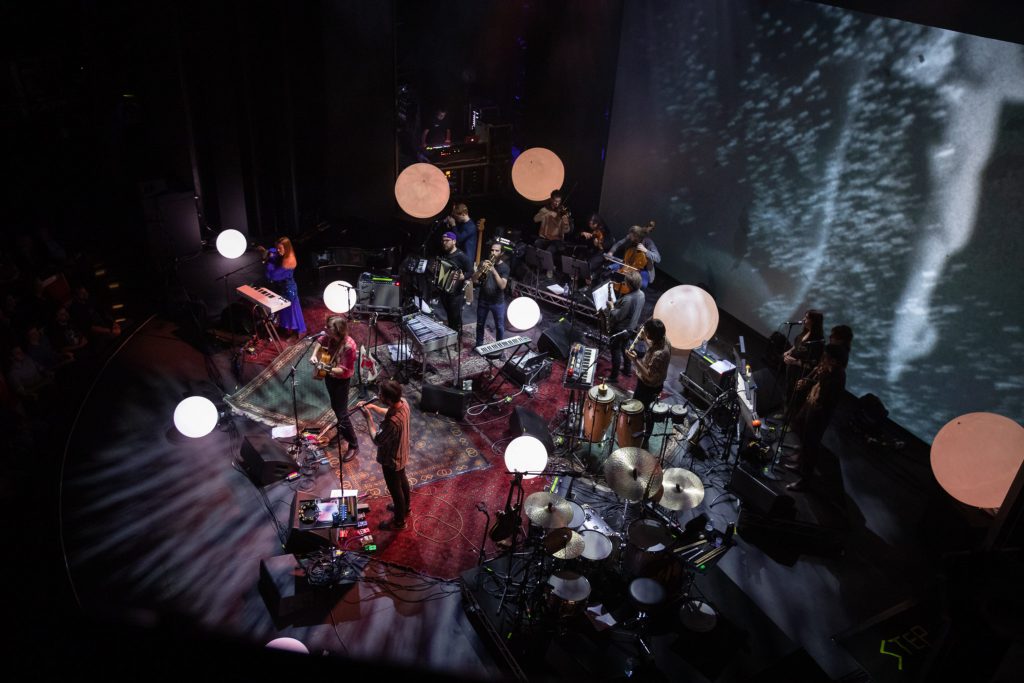Here’s What Happened At The Middle East’s Divine (And Divisive) Sydney Show
The Middle East's Sydney show was about reclamation, about legacy. If only the audience realised that.

Greg Walker is looking out at rows of empty seats, guitar in hand.
“It is early, isn’t it,” he quips, observing his 7:30pm time slot. “I’d normally be having dinner ’round about now.”
Thankfully, Walker — and the rest of his band, Machine Translations — have foregone their dining plans in favour of performing a selection of songs from a Spunk Records cult classic. 2002’s Happy, while by no means a raging chart success, is still one of Walker’s strongest albums. Its single, ‘She Wears a Mask,’ is arguably the closest he’s ever come to the zeitgeist — it placed 95th in the 2002 Hottest 100, ahead of giants like U2 and Coldplay.
It, along with the rest of the album cuts delivered tonight, sounds as bright and cheerfully lackadaisical now as it did then. The songs brought to life by a full backing band, all with an acute attention to detail. Even the tambourine hits are pitch-perfect. Truthfully, the fact there is only a smattering of early arrivals taking in such a special performance feels like an allegory for Walker’s career as a whole. If you know, you know.

Jack Ladder and Holly Throsby. Photo by Prudence Upton.
Like the late, great Jack Lemmon and Walter Matthau before them, Holly Throsby and Jack Ladder are a classic odd couple. The former is a pint-sized indie-folk darling, whose quiet and restrained voice has defined her music for the last 15 years. The latter, a towering 6’8”, has bombastically leapt from genre to genre, his baritone voice booming from the midst of every stylistic shift.
Even still, the two are dear friends — and their collaborative set, which they openly admit is them “just winging it”, is testament to opposites attracting. Ladder adds tasteful guitar work to Throsby’s ‘Aeroplane’ and faithfully subs in for Bonnie ‘Prince’ Billy and Mark Kozelek, respectively, on ‘Would You?’ and ‘What Do You Say?’
Throsby, in return, adds delicate acoustic nuance and beautiful harmonies to Ladder’s ‘Not Worth Waiting For’. Theirs is a complementary, collaborative connection — entirely wholesome and entertaining from start to finish.
At long last arrives the moment many thought would never happen. The Middle East didn’t burn out, but they also didn’t fade away. One moment they were here and then, one weekend in July of 2011, they were gone.
Only one thing could bring them back: The 20th anniversary of the label that housed them, Spunk Records, and a celebration of this milestone under the sails of the Opera House. So it went, for the first time in nearly eight years, that the Townsville collective reconvened before our very eyes — and doubled in size for the occasion too, crowding a grand total of 14 musicians onto the stage.

The Middle East at the Sydney Opera House. Photo by Daniel Boud.
From the outset, it was clear this was going to be a set that rewrote the story of The Middle East. Everything that was happening was on their terms, much like the re-workings that take place at your average Bob Dylan show.
The skeleton of the songs were there, but the multiple layers of orchestration and instrumentation — paired with key changes and tempo shifts — meant that we were getting unfaithful renditions of songs from across their canon.
That’s not meant to paint these versions in a bad light whatsoever, though. The arrangements shrouded themselves in ambience, taking the pin-drop silence of the room and piercing through it. A half-dozen microphones are occupied at any given time, with voices filling the space in both unison and harmony.
If you wanted to hear these songs sound like the recordings of The Middle East, go listen to The Recordings of The Middle East.
VHS-style home-recording visuals roll behind them, mostly depicting long and winding journeys — and at one point, tellingly, the video goes into reverse. The members of The Middle East know that they’re taking a step backwards into their past lives by performing together again. It doesn’t appear to ever come across as a negative thing — if anything, it feels more cohesive and together than their last performances in 2011, as if this exact amount of time needed to pass in order for this to happen once more.
One mystery that goes unsolved is the discomforted reaction many audience members take with the set. In the last 30 minutes, people are leaving in droves — climbing over knees in the stalls just to get out of the room from the centre of their row.
It’s truly baffling, and it leads you to question exactly why people responded this way. Could it be that people were expecting shot-for-shot remakes of the songs they know? To that, one can only say this: If you wanted to hear these songs sound like the recordings of The Middle East, go listen to The Recordings of The Middle East.
But tonight wasn’t about those people. Tonight was about something else entirely — about reclamation, about legacy. It was about how The Middle East want to be remembered.
David James Young is a writer and podcaster. When he was 18 years old, according to Last FM, he listened to ‘Blood’ non-stop one day from 2:57pm to 11:21pm – a grand total of 64 times. To this day, he does not know how or why this happened. Visit www.davidjamesyoung.com for more information on David.
Lead Photo: Sydney Opera House/Prudence Upton


